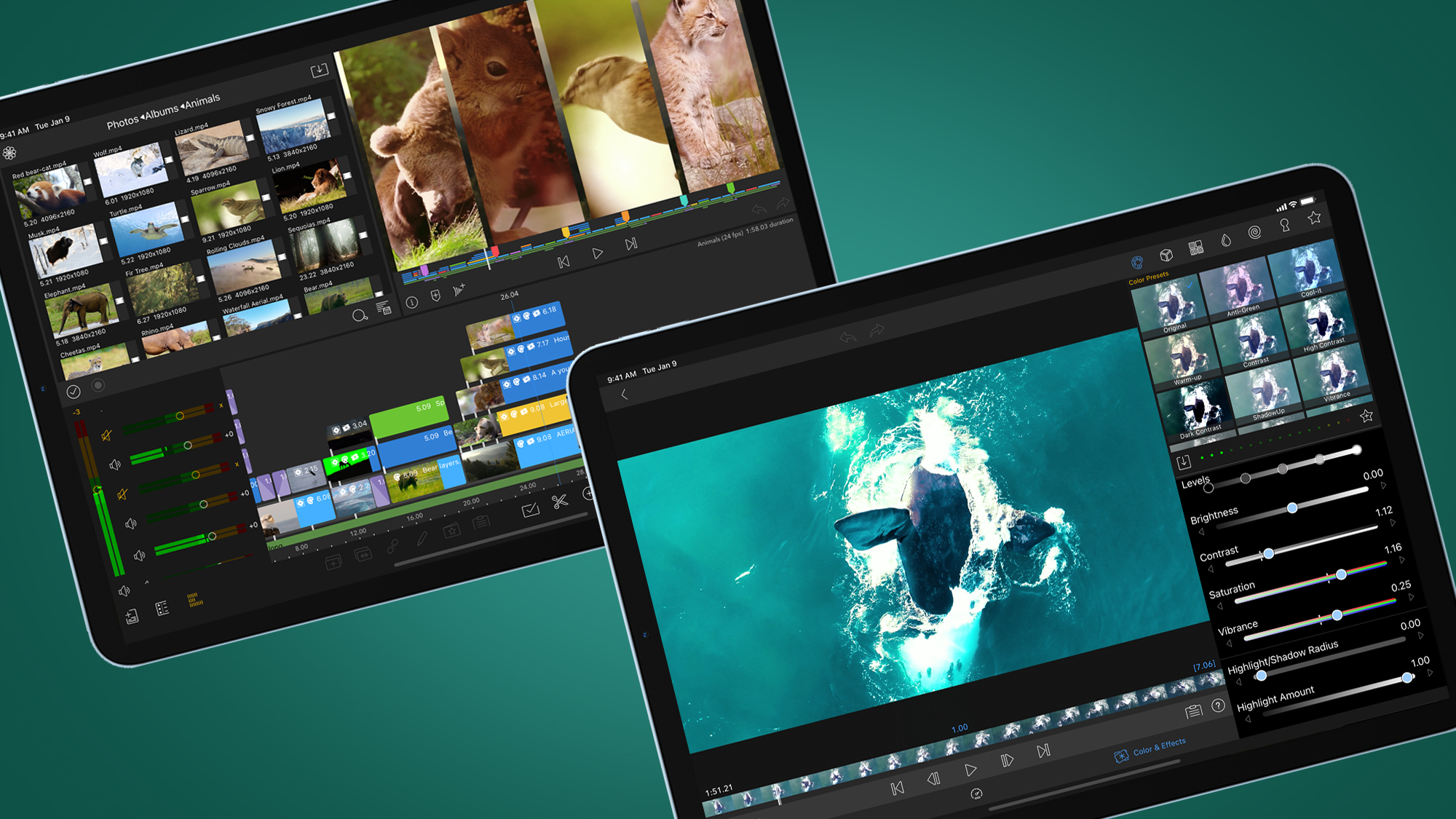Video editor LumaFusion on Android likely won't be exclusive to the Galaxy Tab S8
Maybe more Android slates soon

One of the big announcements at the Samsung Galaxy S22 launch event was that the new tablets, the Galaxy Tab S8 line, would be receiving LumaFusion, a popular video editing app that was previously only available on iPads.
This is great news for Android tablet fans, as it could signal the beginning of the end for iPad's app advantage, but it turns out Samsung's new tablets might not be the only members of the Android ecosystem which get the video editing app.
Chris Demeris and Terri Morgan, the co-founders of LumaTouch which makes LumaFusion, provided us with some extra information on the upcoming launch of the app onto Android devices.
Firstly, as the headline to this article and above text suggests, LumaTouch isn't stopping with the Galaxy tablets. "It is our goal to make LumaFusion available to the widest possible array of devices".
That rollout won't be quick though: "every Android mobile device is different, and has different requirements so there is no one-size-fits-all approach," TechRadar was told "we won’t [roll out to more devices] until we’ve thoroughly vetted and tested those devices - again, it’s about creating the best LumaFusion experience possible for users and we don’t compromise on that priority."
LumaFusion currently doesn't have a release date on the Samsung tablets. LumaTouch told us "we are aggressively developing toward a 2022 release," and pointed out that beta tests had been running since "fall" 2021, but a rollout to further Android devices could take even longer.
Almost the same app
We also asked if we could expect any differences between the iOS and Android versions of LumaFusion.
Sign up for breaking news, reviews, opinion, top tech deals, and more.
"Basic functionality will be identical, but because they are vastly different OS's and devices, there will be some limitations, like supported frame rates, supported media, and the number of tracks available for particular devices."
This response makes sense - the world of Android tablets is much wider and more diverse than iPads, and developers generally need to tailor their app for every combination of screen size, resolution, RAM and processor. So it's understandable why LumaTouch is focusing just on one family of slates for now.
It won't be exactly the same app at launch: "the Android app will be based on v2.4 of LumaFusion, so will trail slightly behind the current 3.0 iOS versions until development catches up." This version of LumaFusion, released in mid-2021, includes features like improved video stabilization, direct imports and exports to external drives, and a resizable user interface.
If you are a LumaFusion veteran on iOS, there's an extra bonus for you though: "one feature we think our users will be pleased with is project compatibility between the Android and iOS versions", so it sounds like there will be a way to drop files and timelines between tablets.
Finally, we asked how much LumaFusion on Android will cost - currently it's $29.99 / £25.99 / AU$46.99 on the app store. LumaTouch couldn't confirm an exact price, but told us "we expect pricing to be in line with the current price of LumaFusion for iOS".
LumaFusion remains a vital tool for mobile journalists and filmmakers, as its balance of affordability, portability and useful features makes it second to none for people who need an edit station away from a desktop PC or laptop. Now that it's coming to Android devices, tablets running non-Apple software can be as useful as iPads for on-the-go creativity.

Tom Bedford is a freelance contributor covering tech, entertainment and gaming. Beyond TechRadar, he has bylines on sites including GamesRadar, Digital Trends, WhattoWatch and BGR. From 2019 to 2022 he was on the TechRadar team as the staff writer and then deputy editor for the mobile team.